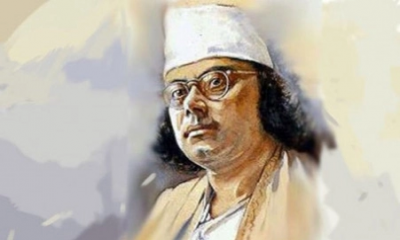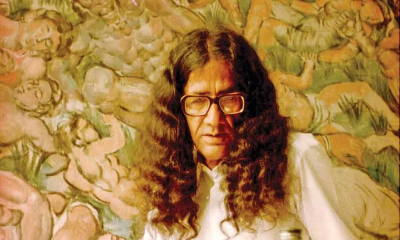It is generally agreed upon that existentialism originates from the thinking of Philosopher Soren Kierkegaard (1813-1855), however Jean-Paul Sartre is credited with making ‘Existentialism’ glamourous!
Sartre’s version of existentialism is considered the most widely substantial version of ‘Existentialism’ – a literary movement that emphasises on the ‘free-will’ of humans. In Sartre’s theory, humans are born into a kind of void (le neant), and mud (le visquex).
He has explored the idea in his literary works that humans may choose to remain in the ‘mud’ which means in their passive self, a sort of recumbent, acquiescent existence just like Samuel Beckett’s sad tatterdemalions, in which a human is half conscious about their state and is barely unaware of themselves.
However, humans also have the liberty to breakthrough this supine state. In the process of coming out of mud, humans experience despair and come to realise ‘the absurdity of the world.’ The energy that is derived from this awareness helps one drag himself or herself out of the mud, and then we begin to exist.
As life is meaningless, by exercising our power of choice we can give meaning to our life and to the universe. Sartre empowered us by making us understand that the authorities which direct our lives, such as the religious institution, political leaders, and so on are themselves clueless about life. So, it is only us, who can decide what to do with our life and give it a ‘meaning.'
He further explores this idea in his landmark text ‘Being and Nothingness' (1943), he expressed the belief that humans can rise above their passive and indeterminate condition, and by the power of will they can commit to certain action in social and political life and thus, create their existence.
Sartre had a life-long interest in Marxism, which is very overt in his texts. Satre believed capitalism to be a 'giant machine' designed to create a sense of necessity which does not exist in reality. This false, authoritarian system rules our lives, and forces us to believe that we have to work a certain number of hours, or have to earn a certain amount to be happy, buy the latest products or dine at a certain exclusive place to be happy and successful. Whereas, we could choose to live in completely other ways. All these ideas of Sartre are correlated with Marxism.
He deeply admired Fidel Castro and Che Guevara and also went to meet them in-person. He was incredibly inspired by leftist leaders. Sartre founded the French journal “Le Tempes Modernes” along with his partner Simone de Beauvoir and Maurice Merleau-Ponty, a platform for publishing existentialist writings in 1946. The review is typically accredited as a medium for leftist writings.
Satre is a Parisian by birth, he was born and brought up in Paris, the French capital. His father was a Navy Captain and passed away when he was a child. Inevitably, the young Sartre was extremely fond of his mother. His mother remarried when he was twelve, an incident which he very much despised. Thus, he spent his growing years in the small cafes of Left Bank in Paris.
His seminal text ‘Being and Nothing’ published in 1943 earned him popularity spanning across Europe and Americas. His ideas could not be easily comprehended by people, as a consequence, his works became even more popular. It could be said that human being’s instinctive fascination towards enigma made them discuss Sartre’s work even more.
On November 22, 1964, Jean Paul-Sartre turned down the Nobel Prize in Literature. “I have always declined official honours,” he explained at the time. “A writer should not allow himself to be turned into an institution. This attitude is based on my conception of the writer’s enterprise. A writer who adopts political, social or literary positions must act only within the means that are his own – that is, the written word,” he said as a reason of declining the highest accolade of all time.
In the heavily inequal world that we live in, where we are constantly burdened with status quo, Sartre’s ideas are a sigh of relief. Human beings spend all their life trying to find the meaning in meaningless, whether through religion, politics or even artistic expressions which often binds our lives in a box.
Sartre, as a modern existentialist nurtured the thought that life does not have any preordained logic. Sartre’s works help us break the shackles of capitalism, and understand its trap. And that life itself is inherently meaningless or absurd. Thus, he empowers us to look beyond the box, beyond traditions, and inspires us to “To follow knowledge like a sinking star.”
Sartre passed away on April 15, 1980 in Paris and lies beside the love of his life Simone de Beauvoir.







































